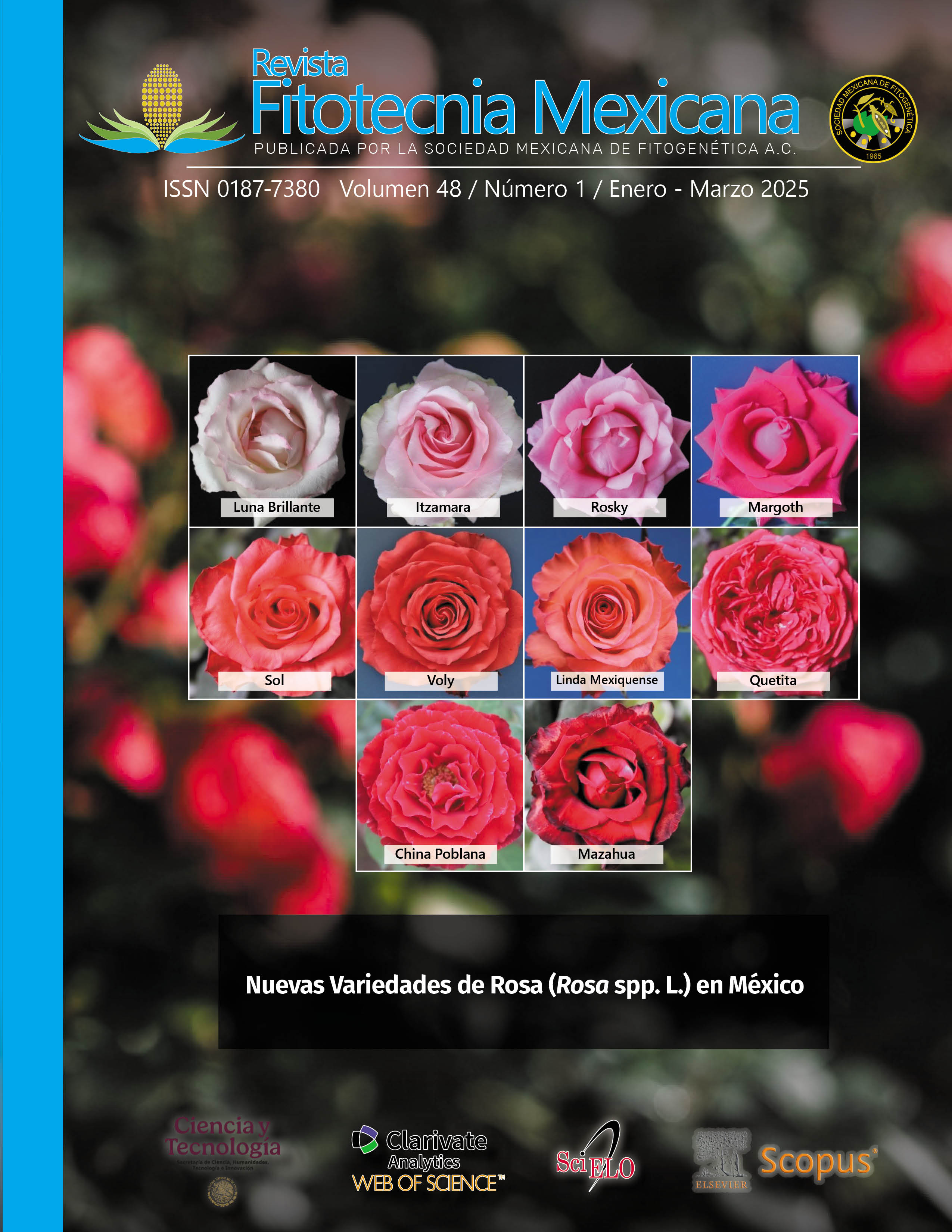DIALLELIC ANALYSIS OF INDETERMINATE GROWTH HABIT TOMATO LINES FOR YIELD AND FRUIT QUALITY
Main Article Content
Abstract
In Mexico, the cultivation of tomato (Solanum lycopersicum L.) is of great socio-economic importance; however, the breeding of this species in the country is carried out mainly by private companies. This study aimed to analyze the general (GCA) and specific (SCA) combining ability, and heterosis of diallelic crosses by the Griffing’s Method II Model I, of six S5 tomato lines with different fruit shape and indeterminate growth habit, and compare their performance with a commercial hybrid (El Cid®) under greenhouse and hydroponic conditions. Twenty-two genotypes were evaluated in a randomized complete block design with three replicates of 10 plants each, in Montecillo, Mexico in 2022. Phenological information, physical characteristics and fruit quality traits were recorded, as well as the number, total weight of fruits (TWF) and bunches per plant. Analysis of variance and comparison of means (Tukey, P ≤ 0.05) were performed. Diallelic analysis was carried out using the DIALLEL-SAS05 program; the effects of GCA, SCA, mean heterosis and heterobeltiosis were estimated. Statistical differences were found between genotypes and their partition into GCA and SCA for all variables. For TWF, lines 22021 and 22015 stood out in GCA (222.6** and 231.6**), while hybrids 22018, 22017 and 22016 did so in SCA (379-735**). Lines 22021 and 22010 showed the greatest genetic divergence (SCA in TWF of -779.6** and -307.8) and their hybrids 22014, 22008, 22018, 22017, 22019 and 22016 expressed heterobeltiosis of 1.5 to 19.4% in TWF. Genotypes 22017, 22014, 22018, 22015 and 22020 produced more than 4500 g per plant (200.0 to 206.7 t ha-1) and were not different from El Cid® in TWF. Lines 22021, 22015 and 22010 could be used in breeding programs.

